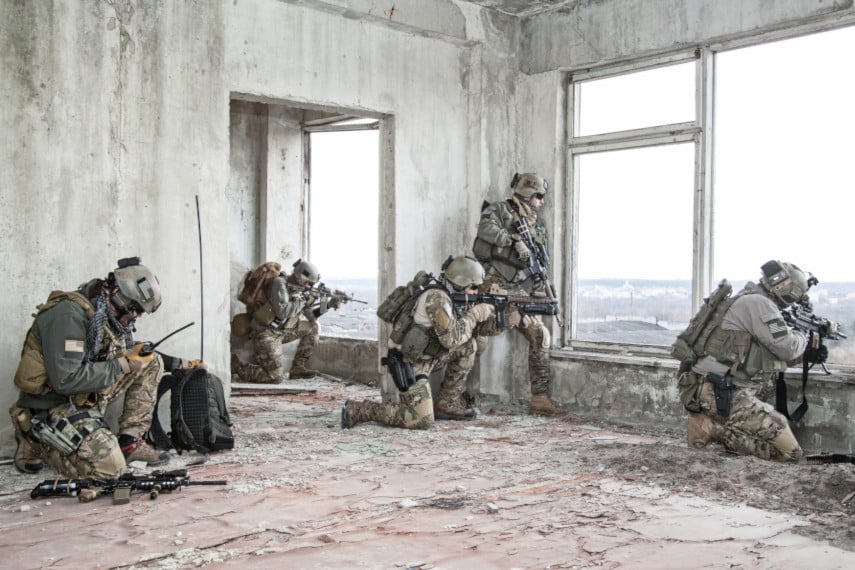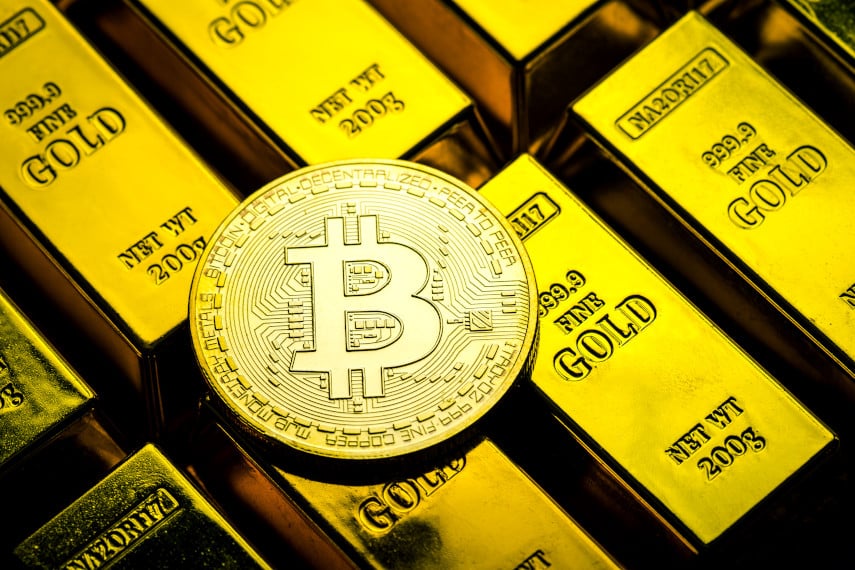
There’s a growing perception today that the world is closer to the brink of all-out war than it has been at any point since World War II. Between war in Ukraine and growing conflict in the Middle East, the potential for even limited regional conflicts to explode into all-out war seems to be growing.
No one thought World War I would be as destructive as it was, yet it completely changed the course of European history, toppling numerous governments. World War II was even more damaging, with the Iron Curtain keeping Eastern Europe subjugated to communism for decades.
While the US has managed to avoid some of the most destructive impacts of war, it hasn’t remained unaffected. During World War II, for instance, the economy was placed on a total war footing, with rationing of necessities like food, gasoline, and fabrics.
Were the US to enter another major war, it would likely once again have a major impact on the US economy. The amount of money spent on war would burden taxpayers, and who knows what other effects would occur.
But even if the US weren’t to enter another war, war happening elsewhere can still have an impact on our shores. What happens in other areas of the world impacts US businesses, including those supported by Americans.
War in other countries can negatively impact business operations of companies here, which could lead to diminished financial performance, which can negatively impact individuals. The more severe a war becomes, the worse those effects could be.
How War Could Affect Your Retirement Savings
There are numerous ways war could affect your retirement funds, but there are four key things to think about.
1. Sanctions and Embargoes
One of the prime impacts of war is the use of sanctions and embargoes. Russia is one of the most-sanctioned countries in the world today, with sanctions first having been placed on it in 2014 after Russia’s seizure of Crimea.
After the invasion of Ukraine, even more sanctions were placed on Russia, Russian businesses, and prominent Russian individuals. But Russia isn’t the only country subject to sanctions.
The US government has sanctions on North Korea, Libya, Iran, Somalia, and numerous other countries. In many cases these countries are not or have not been trading partners with the US for some amount of time, so the impact of these current sanctions may be minimal.
But future sanctions on other countries could impact US companies, or foreign companies operating in the US who do business with those sanctioned countries. The way sanctions are expanding today, companies or countries who do business with countries or individuals that are sanctioned by the US face their own penalties from the US government.
If portions of your retirement savings are involved in firms that do business with countries that come under sanctions, that could impact the financial performance of your portfolio. But that’s not the only thing that can impact you.
It isn’t just US sanctions that can impact you, but the reactions from other countries as well. Most people today don’t remember the 1970s oil embargoes, but that is a threat that always remains in the background, particularly when it comes to conflict in the Middle East.
Many of us learned of the oil embargoes in history or economics classes, and heard the stories of gas lines, rationing based on odd/even-numbered license plates, etc. Those embargoes certainly heaped additional pain on a decade that was already, due to stagflation, experiencing economic hardship.
What’s going on in the Red Sea right now with Houthi attacks is beginning to impact commercial shipping that relies on traversing the Red Sea, pushing many companies to take longer routes around the Cape of Good Hope instead. With recent US and UK strikes on the Houthis, and vows of retaliation, the situation could get a great deal more complicated.
Turkey has weighed in against the US, and if Arab countries rally around the Houthis, the potential for future oil embargoes could grow. This is an area to watch out for in the future, as it’s a possible powder keg that could ignite at any time.
2. Economic Destruction
Of course the most obvious effect of war is the destruction it causes. Pictures from Ukraine, Syria, or Gaza show entire neighborhoods that have been bombed out. The before and after shots make it clear that the wholesale destruction has completely upended life as those people knew it.
For most of those areas, it could take years or even decades to rebuild. Displaced families may never return. Businesses may never reopen. And life will be completely changed.
That kind of destruction has thankfully spared the US, and we hopefully will never experience the type of destruction that has brutalized numerous countries around the world. But we’re not immune to the impacts of war.
If your retirement funds are tied to firms that operate in war zones, they may be impacted financially by the effects of war. That’s especially true for large international firms with operations in dozens of countries around the world.
Their size and diversification may shield them somewhat if their operations in one country fall victim to war, but war may nonetheless affect them. And if you have resources tied to one of those firms, you may feel the fallout too.
3. Fear of Spreading Conflict
Perception can be as important as reality when it comes to markets, and if people are scared of the future and think that a war might spread, then they may take actions to protect themselves. If enough people do this, it could become contagious, and markets could react accordingly.
It seems that every time there is a rumor of conflict in the Middle East, for instance, oil prices start to climb due to fears of Middle Eastern oil supplies being cut off. It doesn’t take much for rumors to spread, and fear of war can create panic.
Right now the war in Ukraine seems to be more or less at a standstill, but the Middle East looks like a potential powder keg. With the Houthis targeting commercial shipping in the Red Sea, there are growing fears that the conflict there could widen, potentially drawing in Iran directly and leading to a greater war.
If these fears materialize, it could impact not only oil prices, but also the price of goods that normally would have been shipped through the Red Sea, as shipping companies are already starting to avoid the area due to the prolific drone and missile attacks.
4. Rebuilding
Believe it or not, but there are people who actually believe that wars are economically productive. They see the rebuilding process afterwards as being beneficial to restraining economic growth, and so they think that there’s nothing wrong with war.
This is an example of the broken window fallacy, the famous economic fallacy that says that by breaking windows you stimulate economic growth because everyone with broken windows has to buy new windows, thus stimulating industry.
What this fallacy fails to see is the opportunity cost inherent in such actions. What would that money have been spent on if the windows hadn’t been broken?
If you have to spend $200 to replace broken windows, that’s $200 you can’t spend on groceries, or gas, or new clothes. If businesses have to spend thousands of dollars to rebuild their factories and machinery after a war, that’s money that they could have spent expanding their business rather than rebuilding.
The rebuilding process after war may be a necessary step to getting back to normal, but it’s by no means a positive for the economy. Taking two steps back just to take two steps forward isn’t the same as taking all four steps forward.
Protecting Your Retirement Funds Against War
In many ways war is one of the most difficult things to protect against. Weather can be forecast to some degree of predictability. Recessions can be foreseen by those remaining observant of market conditions. But war is another thing altogether.
Of all the “Black Swan” events that could occur, war is perhaps the one most likely to take us by surprise. Who could have predicted that Hamas would attack Israel one day and kidnap hundreds of civilians? Who could have predicted that the Houthis would intervene and launch missiles at commercial ships?
Because these types of events are so difficult to predict, it can be difficult to prepare yourself ahead of time. With a recession, you can anticipate its occurrence and take steps to minimize your risk exposure. But with war, you experience the effects first, then have to learn how to deal with them.
One of the ways that many people respond to wars is by trying to move their assets into safe havens, including precious metals like gold and silver. This isn’t much different than the way people protect themselves against recession and financial calamities.
Gold and silver have been trusted for centuries to protect wealth and financial well-being through both good times and bad. And when times get really tough, gold and silver prices tend to rise due to increased safe haven demand.
We saw this in the aftermath of the 2008 crisis, during the 2020 recession, and even today as many people are still looking to stock up on silver and gold ahead of another potential recession. With the potential for increased conflict in the Middle East, the gold price remains elevated, and gold demand remains strong.
If you’re looking to protect your wealth against the effects of war, maybe it’s time to start thinking about gold and silver. With over $2 billion in precious metals placements, Goldco has helped thousands of Americans just like you benefit from owning gold and silver.
Don’t let war sneak up on you and take a bite out of your hard-earned retirement savings. Call Goldco today and learn more about how precious metals can help you safeguard your financial well-being.






